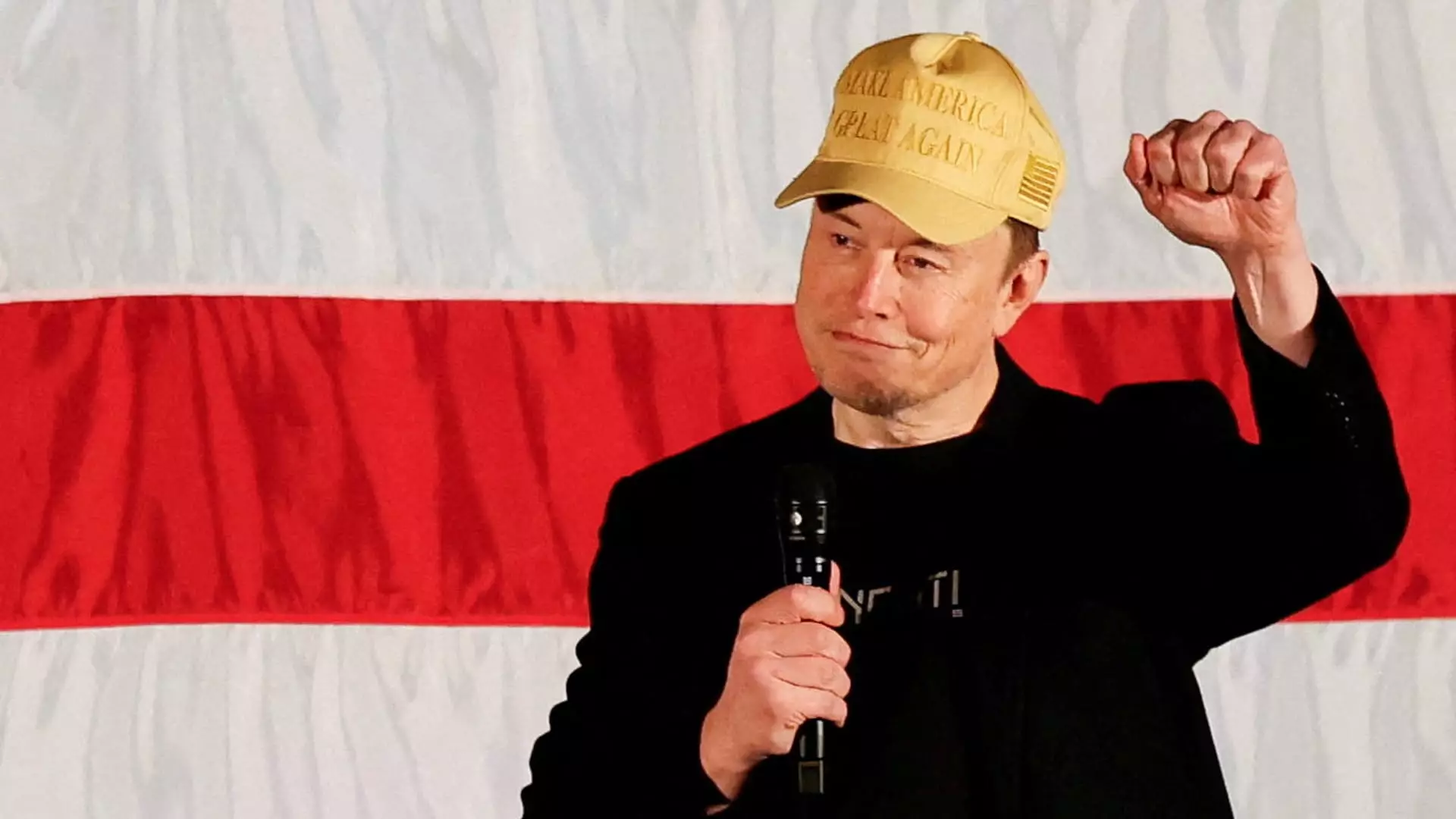In a bold and polarizing move, tech billionaire Elon Musk recently announced his plan to incentivize voter participation ahead of the upcoming election by offering $1 million a day to registered voters who support his pro-Trump political action committee. This decision has sparked significant debate, raising questions about the ethical implications and potential legal ramifications of such a strategy. Musk, who is known for his unfiltered opinions and controversial statements, made the announcement during an event in Harrisburg, Pennsylvania, asserting that his initiative could mobilize voters in critical swing states.
Musk’s announcement was framed as a surprise for attendees at the America PAC event, generating excitement among supporters. By personally handing a giant check to one of the petition signers, Musk sought to create a spectacle that would draw attention to his campaign. His rationale was simple: motivate people to register and vote by offering a substantial reward. However, this raises concerns about the integrity of the electoral process. Critics argue that providing cash incentives in exchange for political support undermines the democratic values that are foundational to American governance.
Legal experts have been quick to scrutinize Musk’s actions. Rick Hasen, a law professor at UCLA, noted that Musk’s scheme could potentially violate federal election laws, which prohibit cash payments tied to voter registration or voting. The law aims to preserve the integrity of the ballot, ensuring that individuals make their political choices free from financial coercion. Hasen’s commentary underscores a critical point: allowing wealthy individuals like Musk to influence the political landscape with cash rewards could set a dangerous precedent, whereby votes become commodities sold to the highest bidder.
Beyond the monetary incentive, Musk’s remarks during his speaking tour reflected a broader narrative of distrust towards government institutions. He openly criticized various agencies, describing them as ineffective and overly bureaucratic. While many would argue that questioning government actions is a hallmark of democracy, Musk’s approach seems to flirt with dangerous rhetoric. His repeated derogatory comments about prominent Democratic figures, including President Biden and Vice President Harris, raise ethical concerns about the tone of political discourse. Moreover, Musk’s past remarks—some of which have attracted the attention of federal authorities—highlight a pattern of provocative statements that blur the lines between free expression and responsible communication.
Musk’s controversial initiative serves as a reminder of the pervasive influence of money in contemporary politics. In recent years, the Supreme Court’s Citizens United ruling has facilitated the influx of dark money into political campaigns, creating an uneven playing field where wealth can disproportionately affect electoral outcomes. Musk’s actions could further exacerbate this trend, leading to an environment where those with financial resources have an outsized influence on political processes. Critics argue that this undermines the democratic principle of one person, one vote, as financial power can skew public opinion and voting behavior.
Public sentiment regarding Musk’s initiative is decidedly mixed. While some view it as an innovative approach to increasing voter turnout, others see it as a blatant attempt to manipulate the electoral process. Social media platforms have exploded with discussions, ranging from humor to outrage, encapsulating the divisive nature of Musk’s personality and his political engagement. As election day approaches, the efficacy of Musk’s strategy remains to be seen. Will his initiative lead to increased voter turnout among his supporters, or will it draw further scrutiny and potentially legal challenges?
Elon Musk’s recent announcement to fund a voter incentive program raises significant ethical and legal questions that could have far-reaching implications for the electoral process in the United States. As a figure who thrives in the limelight, Musk’s motivations may be as complex as his persona—blending genuine philanthropic intentions with a desire to influence political outcomes. However, the intersection of wealth and politics requires careful navigation to preserve the foundational democratic ideals that govern the nation. The unfolding events surrounding this initiative will undoubtedly be closely monitored by political analysts, voters, and legal experts alike, as they unravel the implications of such bold actions in an increasingly polarized political landscape.


Leave a Reply